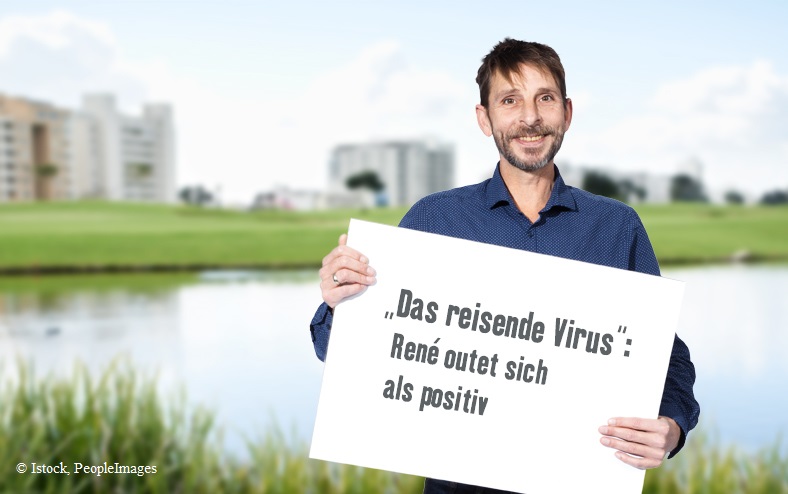René became infected back in the early 1990s, when positive people had to struggle with discrimination and prejudice more than they do today.
"HIV coming out - that sounds dramatic. The term sounds like a night-long inner struggle. 'Do I say it, do I not say it, and if so, to whom? I have never asked myself this question. It's in my nature to tell friends and family about important events in my life. And so it was my parents who were the first to find out about my infection.
After an emergency operation on New Year's Eve 1993, I was hospitalised for weeks. Shortly before I was discharged, the doctors told me that I was carrying the virus and that it was probably the cause of my collapse. As soon as I had got over the initial shock, I rang my parents and arranged to talk to them. They cried even more than I did. In the end, my father said: 'Son, we can do this.
My boss was much less supportive. I hadn't intended to let him in on it. Unfortunately, I bumped into him on the street. He asked me how it could be that I was walking around outside despite being on sick leave. I literally broke down, started crying and told him why. 'Well then, we don't need to talk any more,' he snapped at me. 'You're out. The next day, I had my notice in my hand. I wouldn't put up with it again today. But so soon after my HIV diagnosis, I was too unstable for an argument. So I gave up my job as a salesman.
I rarely had any bad experiences in the scene. I lived an openly positive life in Stuttgart, and in a city of this size, that means that word gets around. So anyone who judged me because of my infection avoided me anyway. I got involved in the AIDS organisation. As I was still very young, I was well suited as a dialogue partner for school classes. The young people were open and curious about me. Because of my trips all over Baden-Württemberg, my colleagues at AIDS-Hilfe soon gave me the nickname 'the travelling virus'."
Reported here Thilo about his experiences.










